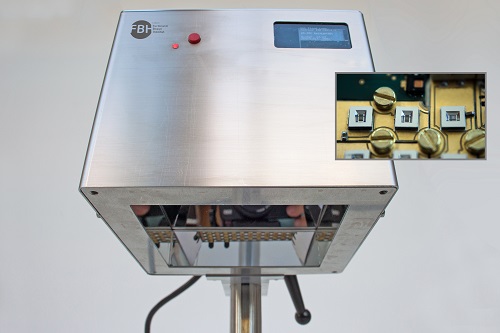German research institute the Ferdinand-Braun-Institut (FBH) and Technische Universität Berlin (TUB) have developed UV LEDs emitting UV light that is safe to the skin. The achievement has yet commercially available but will be tested in medicine research centers in Germany.
The FBH and TUB worked under the framework of their Joint Lab GaN Optoelectronics and created LEDs that deliver far UV light at wavelengths around 230 nm and provide more than 1 mW output power. According to the FBH, the light does not penetrate into the living layers of the skin because of the high degree of absorption. It is therefore expected that the skin will not be harmed at all or will be damaged so little that the natural repair mechanisms compensate for the effect.

(Image: FBH)
The researchers hope that this will help to kill MDR pathogens without any long-term side effects. Within the framework of the VIMRE project (prevention of infection with multidrug resistant pathogens via in-vivo UVC irradiation), FBH has developed and produced an irradiation system comprising an array of 118 of these LEDs on an area of 8 cm x 8 cm. It achieves a maximum irradiation power of 0.2 mW/cm2 with more than 90 % uniformity over an area of 6 cm x 6 cm.
The first prototype was delivered to the Department of Dermatology at Charité – Universitätsmedizin Berlin for skin examinations. Another device will soon be delivered to the Institute for Hygiene and Environmental Medicine of the University Medicine Center Greifswald to clarify the microbicidal effectiveness. VIMRE is funded by the German Federal Ministry of Education and Research (BMBF) as part of the consortium "Advanced UV for Life" within the Twenty20 program.
The device might also be interesting for corona viruses, as they can also be inactivated by shortwave UVC light. Since SARS-CoV-2 replicates in the pharynx in the first phase, it seems plausible to use such light sources in this part of the body to prevent a COVID-19 disease.





 CN
TW
EN
CN
TW
EN






